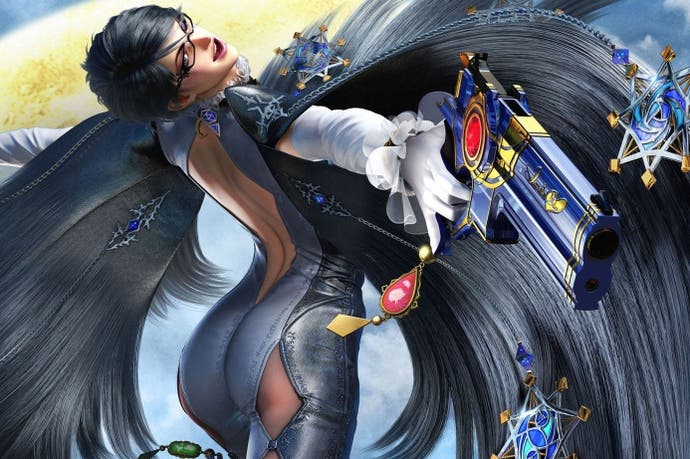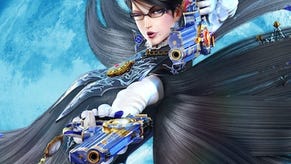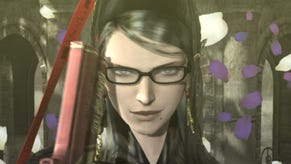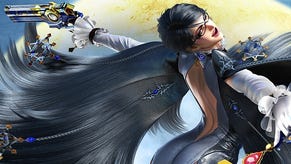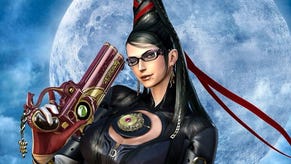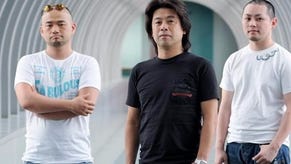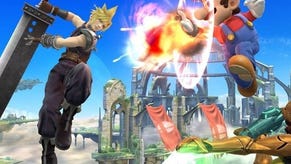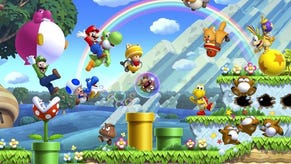Bayonetta 2 is a sequel to savour
A weekend with Platinum's Wii U exclusive reveals everything that made the original a classic is intact.
I loved Bayonetta. The 2009 original was a whirling dervish of a brawler, throwing out a hundred punches every which way, with every single one of them hitting the spot. It was Platinum's technical brand of fighting sped up into an absurdist blur, every bit as inventive as a Tokyo EAD Mario game where new ideas and preposterous set-pieces are thrown in as quickly as they are thrown away. It makes sense, then, that the sequel has ended up on a Nintendo platform.
I still adore Bayonetta. As sharp as a scythe and with putdowns that slam down with the sharp crack of a pistol-equipped boot, she's a phenomenal character: strong, empowered and not about to take any crap from any of the dolts that surround her. In Bayonetta 2 they're as roughly drawn as before; Enzo, Rodin, Luka and now Loki, a child with silver white cornrows and an accent that sounds like an Etonian who's spent their gap year in the West Indies, are a quartet that toe the line between vulgar caricature and parody, and you can feel Platinum playing heavily towards the latter. Bayonetta's a game that puts as much energy into sending up other games as it does into its combat, and it's an odd, frequently foul-mouthed concoction. Not every swipe lands at the target, though.
Bayonetta 2's pretty much everything you could expect from a sequel. I've played through a significant amount of the whole thing, but am only allowed to tell you about the opening third. Know this, though: the combat crackles as satisfyingly as before, the jokes fall flat just as often and the narrative that drives the whole thing, well frankly I haven't a clue what's going on. The energy, though, is remarkable.
Take the first level proper, which is as good an opening as you're going to get in a video game. I was playing it across the same weekend as I was getting reacquainted with The Last of Us, funnily enough, and both had me welling up as their introductions came to a close - though in Bayonetta's case it was more a case of realising exactly how much I'd missed Bayonetta's high energy brand of gaming as well as a natural reflex reaction to my eyeballs about to burst into flame. It's just so much.
Seriously, it's staggering. From when Bayonetta strolls on screen like an angelic, elongated take on Audrey Hepburn in Breakfast At Tiffany's with a white hat and dress that I hope, hope, hope will be an unlockable at some point in the future to a succession of references that starts with Crazy Taxi and ends up, via a little After Burner love, to a kaiju tribute that puts this year's Godzilla reboot to shame. When Bayonetta 2's main theme kicks in during your first fight proper - a poppy, catchy number that I've had on loop since it first cracked a big grin on my face - it's hard not to be overwhelmed.
That Bayonetta 2 maintains those energy levels throughout its first third is astonishing. The make-up of the game is familiar - cut-scenes segue into light exploration and then into electric bursts of combat with a couple of bosses thrown in every level to keep you on your toes. Bayonetta 2's variety and pacing make it all seem as inventive as last time out, and a little more relentless too.
There are some new wrinkles in the combat that shift things up, though only slightly. The most fundamental addition is the Umbran Climax, a magic meter filled up through fighting that can be unleashed when topped out, setting off a hyper string of screen-filling attacks. It's a meaty interlude, perfectly handy for softening up some of the more persistent foes and another layer of heady spectacle thrown into a game, but in a combat system where everything interlocks so neatly it can feel a little superfluous.
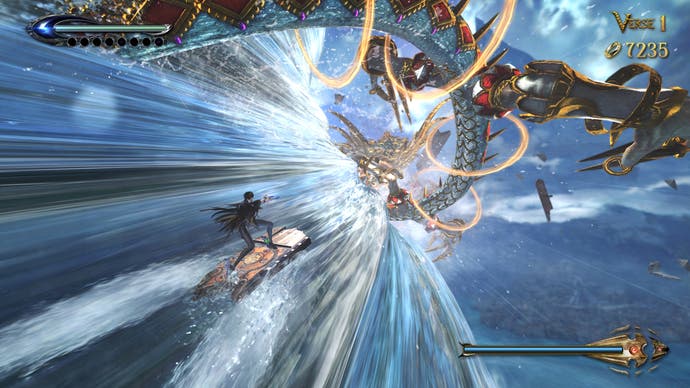
Likewise, the aerial and underwater fights that debut in Bayonetta 2 don't add much, and only take away some of the precision that makes the terrestrial combat really shine. Is it enough to be a problem? Probably not - the few times they turn up in the first five chapters they're not so much a nuisance as a slight let-up in the otherwise ecstatic rhythm Bayonetta 2 weaves. And just as they take the focus away from what Bayonetta does best - the thundering, countless pistons of its combat - the focus is restored elsewhere. The combat challenges that were hidden throughout the original Bayonetta are now placed on your path of progression. They remain optional, but players are now more readily funnelled towards them, and towards the intricacies of Platinum's exquisite fighting.
There's still more to do, and more to discover - though much of it we're not yet able to talk about. Multiplayer, too, is off the menu, which is a shame - from what's been unveiled so far, you can assume that it's a smart appendage that allows you to share in Bayonetta's mix of sharp engineering and sheer insanity with a friend (and though I can't say, you'd quite likely be on the money).
Those first five stages are enough, though. They're more than enough, of course. In Bayonetta 2's fireworks, in between the wisecracks, snapping swords and angry hair-dos there are a hundred reasons to believe this will be a sequel to savour, and that Platinum's made another game it's oh-so-easy to fall in love with again.
